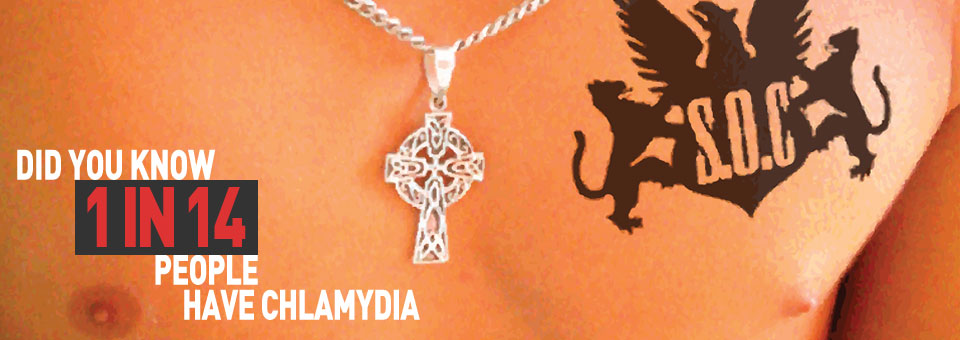SOC Project

SHFPACT, in partnership with the Australian National University and Canberra Sexual Health Centre/Academic Unit of Internal Medicine at The Canberra Hospital, are conducting an 18 month pilot project to 'Stamp Out Chlamydia' at five tertiary education campuses in Canberra. The SOC Project aims to test for chlamydia and treat, if positive, over 2000 tertiary students, and to increase awareness of chlamydia in the target population and determine the overall direct costs of the program and the cost per case identified.
Education about, and testing for, chlamydia will be offered to sexually active people aged 16-25 in the ACT. The project will be conducted through a partnership between Canberra Sexual Health Centre and Sexual Health and Family Planning ACT (SHFPACT), and the Australian National University.
Following the establishment phase (July to December 2006), 12 activities will be conducted on the tertiary campuses between March 2007 and April 2008. SOC will adapt a proven clinical and health promotion outreach model, developed in the public secondary sector by staff from Canberra Sexual Health Centre (CSHC) and SHFPACT, during the Sexual Health, Lifestyle and Referral Project (SHLiRP). The model will be tailored to meet the needs of each sector and site.
Students will be offered:
• A range of educational/health promotional activities (e.g. stalls, residential college dinners and performance)
• Self-administered chlamydia testing
• Resources (e.g. information packs, the opportunity to attend a group education session)
• Referral to other agencies if necessary
All activities and information will be designed to be appropriate for implementation nationally.
This project is funded by the Chlamydia Targetted Grants Program, Department of Health & Ageing, Australian Government and is also supported by funding from the ACT Government.
For more information visit the SOC Website at socproject.net
Stamp Out Chlamydia 1 (2006-2008)
SHFPACT, in partnership with the Australian National University and Canberra Sexual Health Centre/Academic Unit of Internal Medicine at The Canberra Hospital, conducted an 18 month pilot project to 'Stamp Out Chlamydia' at five tertiary education campuses in Canberra. The SOC Project aimed to test for chlamydia and treat, if positive, over 2000 tertiary students, and to increase awareness of chlamydia in the target population and determine the overall direct costs of the program and the cost per case identified.
Education about, and testing for, chlamydia was offered to sexually active people aged 16-25 in the ACT. The project was conducted through a partnership between Canberra Sexual Health Centre and Sexual Health and Family Planning ACT (SHFPACT), and the Australian National University.
Following the establishment phase (July to December 2006), health promotion activities were conducted on the tertiary campuses between March 2007 and April 2008. SOC adapted a proven clinical and health promotion outreach model, developed in the public secondary sector by staff from Canberra Sexual Health Centre (CSHC) and SHFPACT, during the Sexual Health, Lifestyle and Referral Project (SHLiRP). The model was tailored and adjusted to meet the needs of each sector and site.
Stamp Out Chlamydia offered:
• A range of educational/health promotional activities (e.g. stalls, residential college dinners and performance)
• Self-administered chlamydia testing
• Resources (e.g. information packs, the opportunity to attend a group education session)
• Referral to other agencies if necessary
All activities and information were designed to be appropriate for implementation nationally.
This project was funded by the Chlamydia Targetted Grants Program, Department of Health & Ageing, Australian Government.
Stamp Out Chlamydia 2 (2010-2013)
The successful collaboration of Canberra Sexual Health Centre (ACT Health) and Sexual Health and Family Planning ACT (SHFPACT) with ANU Medical School continued with three-year funding support from the ACT Government announced in the 2010 ACT Budget.
Learning and adapting innovations from the first SOC collaboration, the project worked in multiple community and workplace locations to bring a combination of health information, health education and on-site testing to increase community awareness of chlamydia, and to detect and treat chlamydia infection opportunistically. Broadening scope from tertiary education campuses, SOC2 included apprentices, building and construction worksites, and sporting clubs in its activities for small group education and testing, and demonstrated the acceptability of a opportunistic testing model at large events such as Summernats and music festival Foreshore over its three-year life.
The Project was externally evaluated by Curtin University's Western Australian Centre for Health Promotion Research (WACHPR).
For more information visit the SOC Website at socproject.net or contact Sexual Health and Family Planning ACT (SHFPACT) on (02) 6247-3077.
